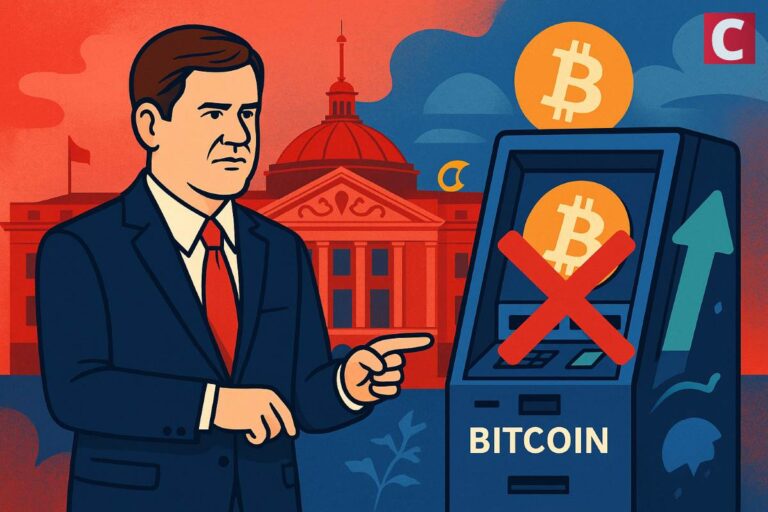Arizona Governor vetoes crypto bills while approving Bitcoin ATM regulations with strict consumer safeguards.
Katie Hobbs, the Governor of Arizona, has rejected two digital asset bills that would have enabled the state to engage more actively with cryptocurrencies. At the same time, Hobbs approved a policy designed to regulate the establishment of Bitcoin ATMs in the state.
On May 12, the Governor vetoed Senate Bill 1373, which proposed the creation of a Digital Assets Strategic Reserve Fund. This initiative was intended to allow Arizona to retain cryptocurrency acquired through asset forfeitures or designated by lawmakers.
In her letter, Hobbs noted that with the “current volatility in cryptocurrency markets,” it is not wise to use “general fund dollars” to purchase crypto assets. She added that, “I have already signed legislation this session which allows the state to utilize cryptocurrency without placing general fund dollars at risk.”
This is not the first time that the Arizona Governor has vetoed a cryptocurrency bill. On May 3, Hobbs rejected the Senate Bill 1025, which is seen as the “Arizona Strategic Bitcoin Reserve Act.” The vetoed bill wanted to allow the state treasury to use up to 10% of their holdings in crypto assets including Bitcoin. The Arizona governor has also rejected Senate Bill 1024. The bill would have allowed agencies to collect taxes, fees and fines using crypto assets.
Recently, the UK Treasury Secretary refused the idea of creating a national digital asset reserve. They noted that it would be better to regulate crypto usage in the country.
Bitcoin ATM Approval
Not all cryptocurrency legislation faced rejection. On May 12, the Arizona Governor signed House Bill 2387 into law, a measure that introduces new consumer protection regulations for digital asset kiosk operators. The goal of this bill is to combat fraud and provide greater transparency.
Under the bill, operators are required to display warnings about potential crypto scams in multiple languages, and customers must acknowledge that they understand these warnings before completing their transactions.
The new regulations also impose transaction limits for Bitcoin ATMs, capping daily transactions at $2,000 for new users and $10,500 for long-standing clients. Operators are also required to display contact numbers on their ATMs for customer support.
next